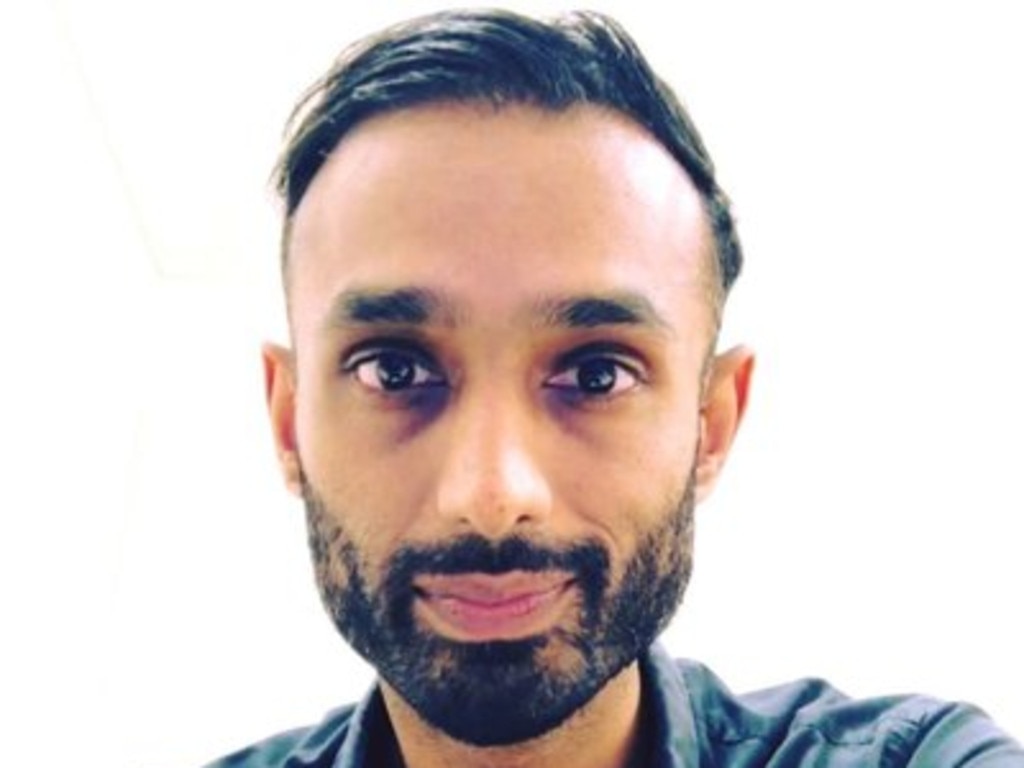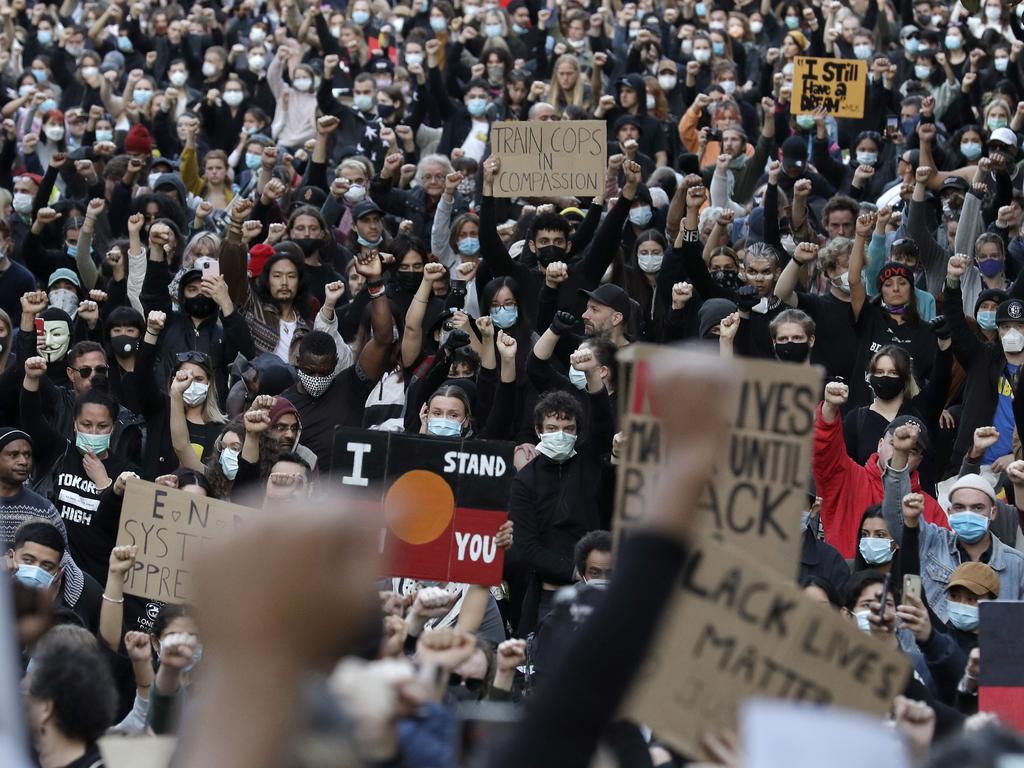British doctor working in Sydney highlights Australia’s racist undercurrent
A Brit has only been in Sydney for two days when he struck up a conversation with two women at a pub. It opened his eyes to racism here.
On just his second day in Sydney, Londoner-turned-Sydneysider Kamran Ahmed was confronted by Australia’s ugly side.
The psychiatrist who moved abroad for work six years ago says he was in a bar when he met two Australian women who opened his eyes to a racist undercurrent he has witnessed time and time again ever since.
The conversation, he says, went like this:
Ahmed: “Where should I live? Redfern?”
Women: “No it’s full of Abos.”
Ahmed: “What?”
Women: “Aboriginals.”
Ahmed: “What’s wrong with that?”
Women: “We’re up here (gestures to head), they’re down here (gestures to waist)”.
On Twitter last week, as Australians gathered for Black Lives Matter protests in capital cities, the successful doctor shared a thread that soon started trending under the hashtag #RacisminAustralia.
#RacisminAustralia - a thread
— Kamran Ahmed (@DocKamran) June 8, 2020
I've been living in Australia for almost 6 years. During that time I've seen & experienced a staggering amount of #racism.
Here are some examples. Hoping sharing this will make people accept racism is a problem here and that it needs to change.
The idea was to shine a light on “the staggering amount of racism” he has endured, but also what it’s like for people of colour in general in Australia.
He shared a story about an incident at a festival when an Australian man commented “bullshit, he’s a black c**t” when he learned Ahmed was from England.
And how he was subjected to “monkey noises” by people in a car when he walked out of his apartment.
And how Aussie kids once shouted: “You did 9/11.”
The anecdotes just kept coming.
A former landlord told him to shave his beard “otherwise people will think (you’re) a terrorist”.
An elderly woman told him out of the blue to “go sell more drugs”.

Speaking with news.com.au, Ahmed said the killing of George Floyd and the protests it sparked around the world “brought up a lot of past experiences of racism for me, which motivated me to speak out against it”.
He said his time in Australia has been shared with some “great people” and that he’s made close friends “but my time here has been tainted by numerous experiences of racism”.
“So I decided to share some of these incidents on Twitter using the hashtag #RacisminAustralia and encouraged others to do the same.
“I thought if we talked about it people might realise it’s a problem, then we could start fixing it.”
He said the response from some Aussies was “less sympathetic”.
Thanks to all those saying they are sorry to hear about these experiences, but I would be grateful if you could please turn it into action and pledge to CALL OUT #RacisminAustralia whenever you witness it.
— Kamran Ahmed (@DocKamran) June 9, 2020
“Some were overtly racist, which helped to prove my point in a way,” Ahmed said.
“Others rubbished the idea that racism exists in Australia or told me I should get over it, take it as a joke or leave if I didn’t like it.”
But he said he was heartened by the response from others.
“Many shared their own experiences which were sad, but important to hear,” he told news.com.au.
“Others offered support, pledging to call out racism when they see it. Someone even confronted a university about the way they were treated – they replied, promising to investigate the matter. Eventually the hashtag started trending in Australia.”
His message for those who tried to shut him down?
“I think people who take these views should try and empathise with those enduring racism,” he said.
“If they had a problem they wouldn’t want people to deny its existence, tell them to get over it or leave. Shutting down the conversation only perpetuates the problem.

“As a psychiatrist I know how damaging racism is for mental health. We all have a duty to try and eradicate it. We should be able to accept that there can be lots of good things about Australia and problems that need addressing. If we don’t, we can’t progress.”
Tens of thousands of Australians gathered over the weekend in cities including Melbourne, Brisbane and Sydney to march to demand better treatment for people of colour in Australia, an end to Indigenous deaths in custody and to declare “Black Lives Matter”.
George Floyd was killed on a street corner in Minneapolis on May 25 as he was handcuffed and begging for air.
Former Minneapolis police officer Derek Chauvin had his knee pressed into Floyd’s neck for eight minutes and 46 seconds, including at least two minutes after Floyd lost consciousness.
He died on his way to hospital.
His death has sparked protests around the world.




